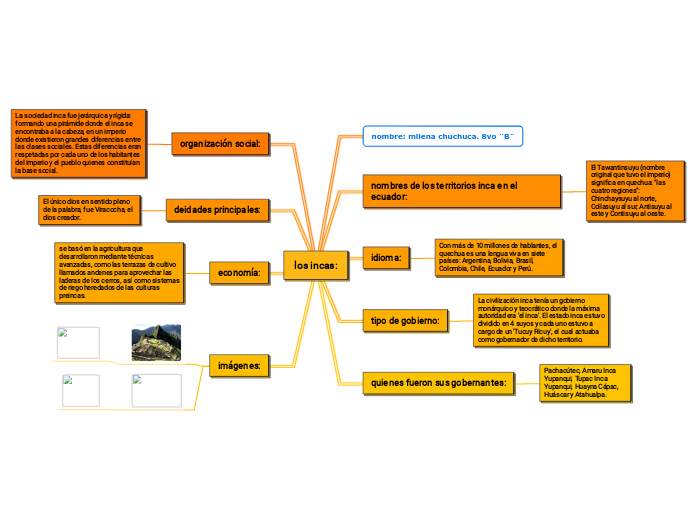von Milena Chuchuca Vor 4 Jahren
434
los incas:

von Milena Chuchuca Vor 4 Jahren
434

Mehr dazu
As the main word in a sentence, the verb will generally describe an occurrence or an action.
An infinitive verb is essentially the base form of a verb with the word 'to' in front of it. When you use an infinitive verb, the 'to' is a part of the verb. It is not acting as a preposition in this case.
The negative verb forms are made by putting not after an auxiliary verb.
Auxiliary verbs are verbs such as have, be, may, do, shall, will, can, or must that are used with another verb to show the verb's tense, to form a question, etc.
A modal verb is a type of verb that is used to indicate modality. Commonly used modal verbs are can, could, must, should, had better, have to and sometimes need or dare.
In grammar, the voice of a verb describes the relationship between the action that the verb expresses and the participants identified by its arguments.
A participle is a form of a verb that can be used as an adjective or combined with the verb to be to construct different verb tenses.
A transitive verb will only makes sense if it applies its action on an object.
An intransitive verb has two characteristics:
1.it is an action verb, expressing a doable activity
2.it will not have a direct object receiving the action
Create sentences with examples!